Recorded crime across Scotland falls after drop in Covid offences
- Published
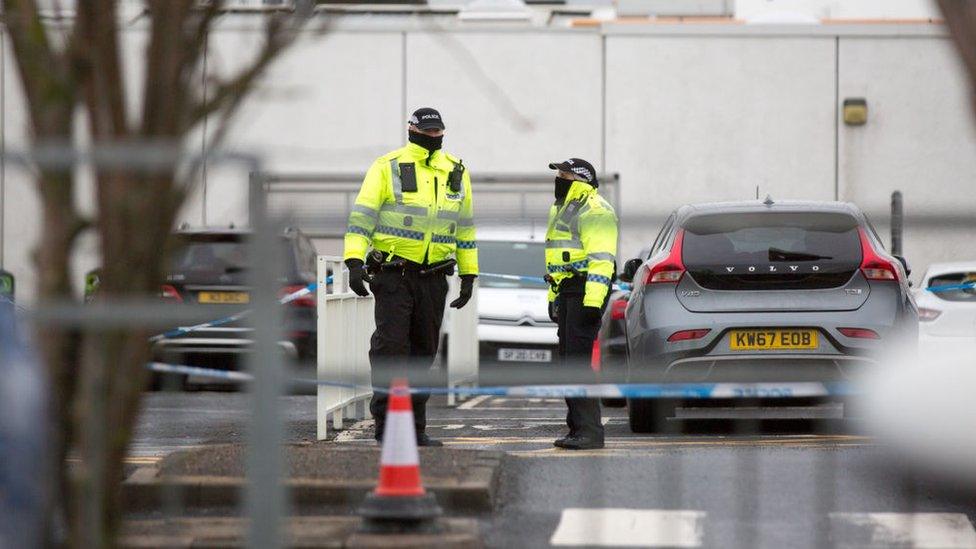
There were increases in violent and sexual crimes
Recorded crime decreased by 5% in Scotland last year after a fall in coronavirus-related offences.
Police recorded 285,974 crimes in the year up to June 2022, down from 300,747 crimes during the previous 12 months.
The number of crimes under Covid-related legislation fell from 20,146 to 96, while all other recorded crimes collectively increased by 2%.
But overall recorded crimes were lower than pre-pandemic levels in the year to June 2018, according to the figures, external.
The Scottish government's quarterly Recorded Crime in Scotland, external publication said that crime had fallen by a total of 43% since 2006-07.
It was also at the lowest level recorded by police for a 12-month period since 1974.
The report highlighted that:
Non-sexual crimes of violence were 9% higher compared with the year ending June 2021
Sexual crimes were 7% higher than the previous year
Crimes of dishonesty were 9% higher
Antisocial offences were 2% lower than the previous year and 14% lower than the year up to June 2018
Crimes against society were 14% lower compared with the year ending June 2021
Damage and reckless behaviour was 1% higher than the previous year
Justice Secretary Keith Brown said that Scotland "continues to be a safe place to live, where the vast majority of people do not experience crime".
He added that while "there are thousands fewer victims in Scotland than there were 15 years ago, there is more to be done".
"Continuing to reduce crime and the harm it causes both individuals and our society as a whole is central to our ambitious vision to reform our justice system," Mr Brown said.
Online offending
Statistics released in June showed that sex offences recorded in Scotland had risen to a 50-year high despite a drop in overall crime figures.
Mr Brown said "multiple factors" lay behind the increase, including a greater willingness by victims to come forward, more historical reporting, more online offending and the impact of new legislation.
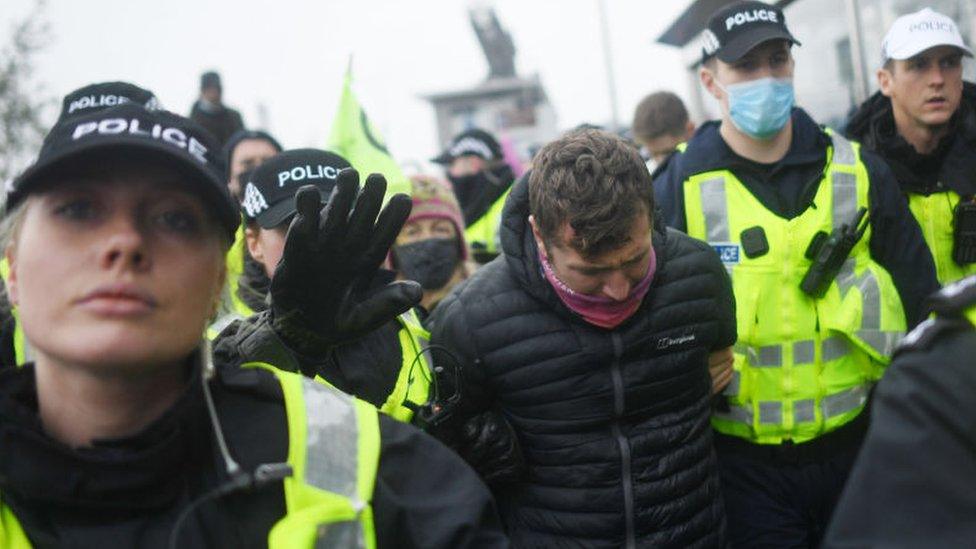
Will Linden, deputy director of Violence Reduction Unit Scotland, said that while the most serious forms of violence - such as murder and culpable homicide - had been "significantly reduced", the online world had become "a more treacherous place", with increasing levels of online extortion and threats, which are captured within the figures.
"The virtual world can be a dangerous place and we need to learn to be on our guard whenever we log on," he said. "Every act of violence no matter where it happens can have devastating consequences.
"The long-term continuing increase in sexual crimes should concern us all and survivors must feel confident to come forward no matter when the offence took place."
'Terrifying leap'
Scottish Conservatives chairman Craig Hoy said the rises in violent and sexual crimes were "troubling".
"They [the Scottish government] are presiding over a crime wave caused by their disastrous management of the justice system, which has led to record numbers of police retirements, criminals being wrongly released and court backlogs causing delays for victims seeking justice," he said.
"Despite this, the SNP are set to make things even worse by slashing the future justice budget still further, meaning more criminals getting away with their crimes as there aren't the resources to catch them."
Scottish Labour's justice spokesperson Pauline McNeill said the "terrifying leap" in violent crime called for urgent action, but "instead the SNP are patting themselves on the back for a job well done".
"This stunning complacency is a gross insult to victims and shows they don't grasp the scale of the challenge we face," she added.
Scottish Liberal Democrat justice spokesperson Liam McArthur said that with violent and sexual crime rates "at some of the highest levels we have seen", "planned SNP cuts to police and court budgets risk hamstringing investigations and undermining prosecutions".
Related topics
- Published5 June 2020
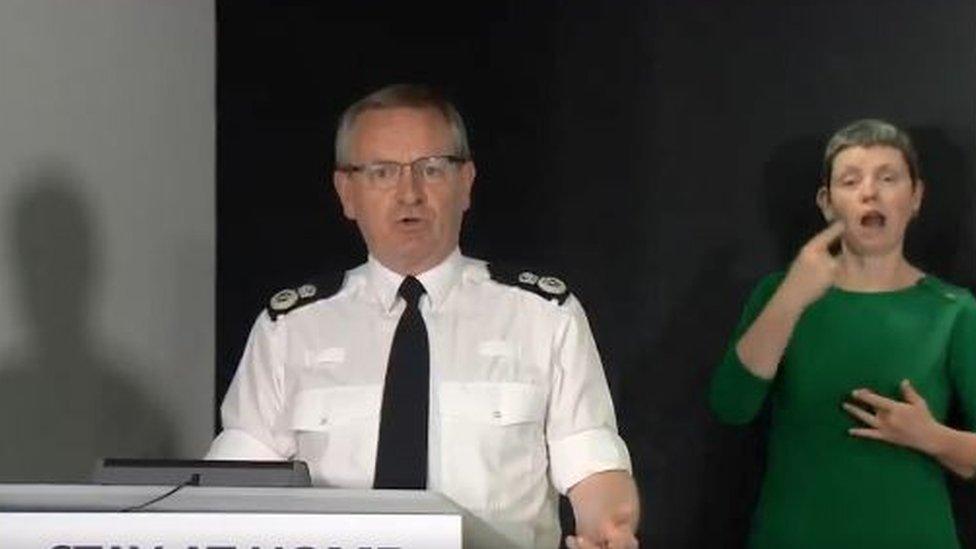
- Published25 May 2020
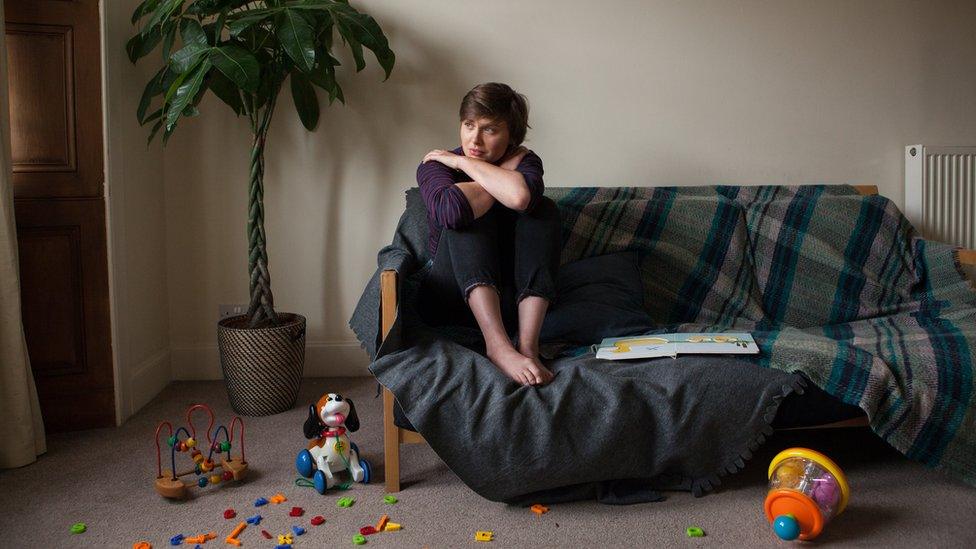
- Published26 April 2020
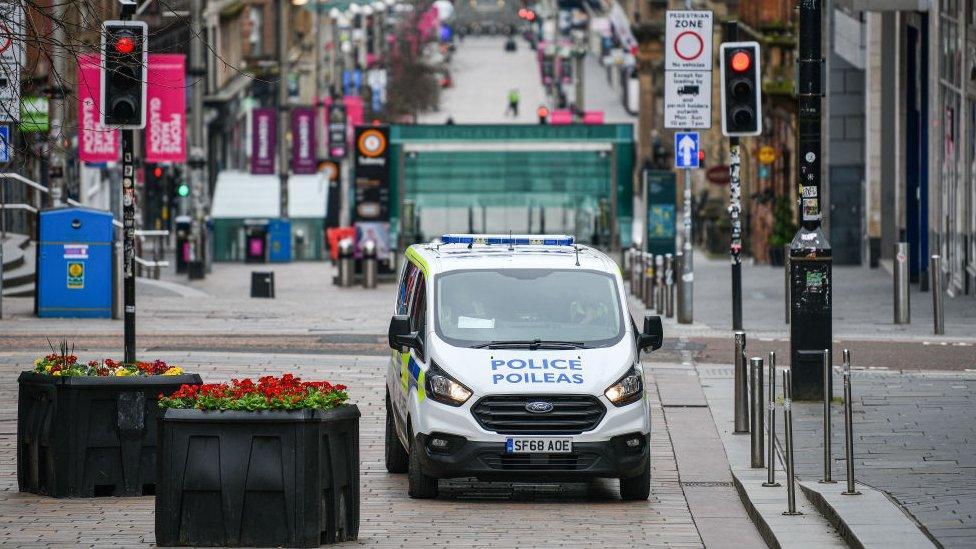
- Published1 February 2018
